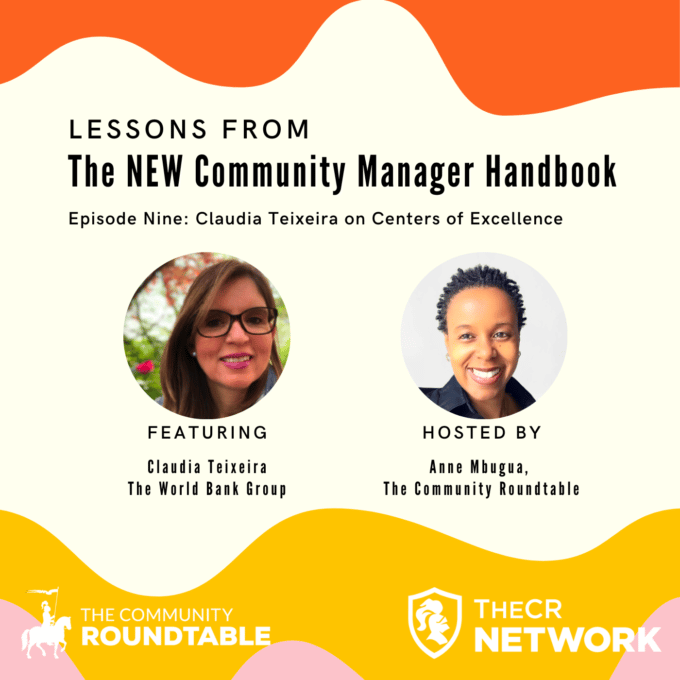
Lessons from The NEW Community Manager Handbook is a limited-run podcast series, featuring the 21 community leaders showcased in the Handbook in conversation with Anne Mbugua.
Episode 9 features Claudia Teixeira, Senior Knowledge and Learning Consultant at the World Bank Group.
Claudia and Anne discuss what a center of excellence entails, the path to centers of excellence at the World Bank Group, and advice for implementing a center of excellence at your organization.
Listen to Claudia Teixeira on Centers of Excellence
Podcast (handbook-podcast): Play in new window | Download
About Claudia Teixeira
Claudia Teixeira activates the development of strategic Communities of Practice (CoPs) and Collaboration Networks connecting key stakeholders to learn together and coordinate action to generate systems change. She co-developed the Communities Reinvented program at the World Bank (WB), an enterprise community program to support a vast ecosystem of more than 350 CoPs at the WB.
Over the years this team developed the WB signature framework for building CoPs and provided training, coaching, and advising services that helped the development of impactful communities in the WB as well as in other international organizations such as the IMF, diverse UN agencies, and global NGOs such as Doctors Without Borders and Save the Children. Communities Reinvented developed a network of more than 1,500 CoP practitioners at the WB, certified more than 300 Community Managers, and provided tailored support to more than 150 CoP teams.
This work generated multiple recognitions including Outstanding Center of Excellence for Communities of Practice, Outstanding Community Playbook, and Best CoP Recognition & Reward program. The CoP building methodology developed by Communities Reinvented is publicly available through the WBG Building Community a Primer and the WBG Community of Practice Toolkit. Claudia is currently guiding the development of the Social Entrepreneurship Community of Practice in Turkey, a national network connecting key stakeholders from the government, multilateral organizations, academia, and civil society to strengthen the social enterprise sector in the country.
About The World Bank Group
The World Bank Group works in every major area of development. They provide a wide array of financial products and technical assistance, and they help countries share and apply innovative knowledge and solutions to the challenges they face. Since 1947, the World Bank has funded over 12,000 development projects, via traditional loans, interest-free credits, and grants.
They offer support to developing countries through policy advice, research and analysis, and technical assistance. Their analytical work often underpins World Bank financing and helps inform developing countries’ own investments.
About The NEW Community Manager Handbook
The NEW Community Manager Handbook features 21 profiles of community leaders sharing advice and ideas on everything from accessibility, hiring, strategy, gamification, defining the digital workplace, technology, and more. Each profile is paired with research from the State of Community Management reports and includes tactical advice for implementing what you’ve learned.
Learn from community management experts at Easterseals, Glencore, Microsoft, UKG, the World Bank Group, Analog Devices, Inc., AAMC, Zapier, Doctors Without Borders, and more.
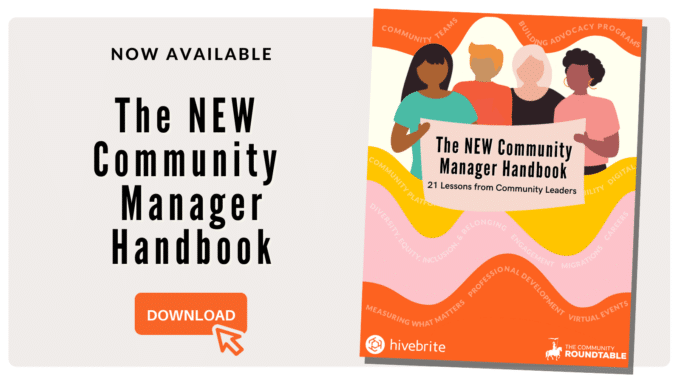
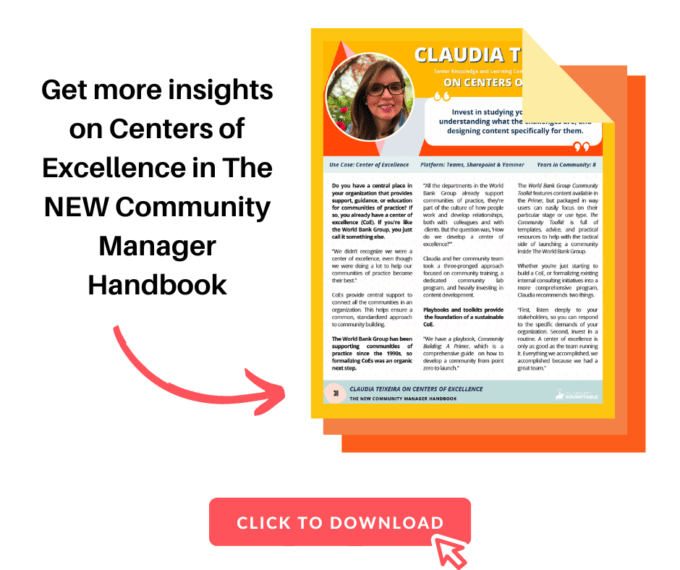

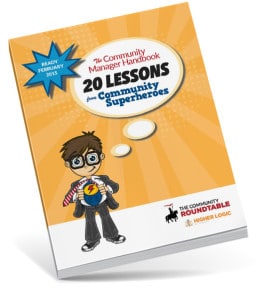
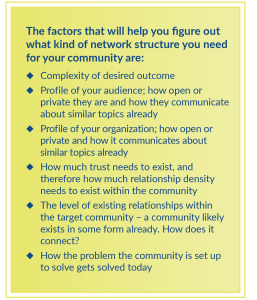 works in the movies. But there’s a related lesson that is a core tenet of community management. How you build it—the shape of the community you create—drives whether the community meets your goals.
works in the movies. But there’s a related lesson that is a core tenet of community management. How you build it—the shape of the community you create—drives whether the community meets your goals.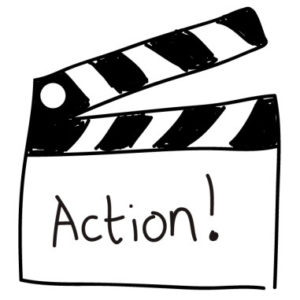
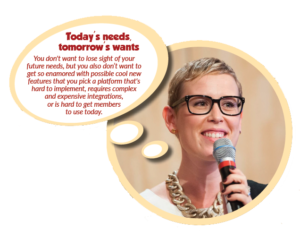 Start with behaviors, not features: Just as you should start your community strategy with the behavior change you want to drive, start your platform selection thinking about behaviors, not bells and whistles.
Start with behaviors, not features: Just as you should start your community strategy with the behavior change you want to drive, start your platform selection thinking about behaviors, not bells and whistles.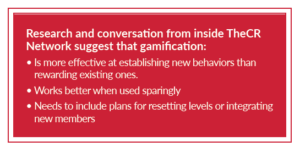 How does it fit your culture?
How does it fit your culture?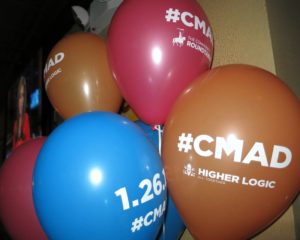 The fifth Friday of 2015 is in the books, and this one comes at the end of a jam-packed week at The Community Roundtable, where we celebrated #CMAD,
The fifth Friday of 2015 is in the books, and this one comes at the end of a jam-packed week at The Community Roundtable, where we celebrated #CMAD, 